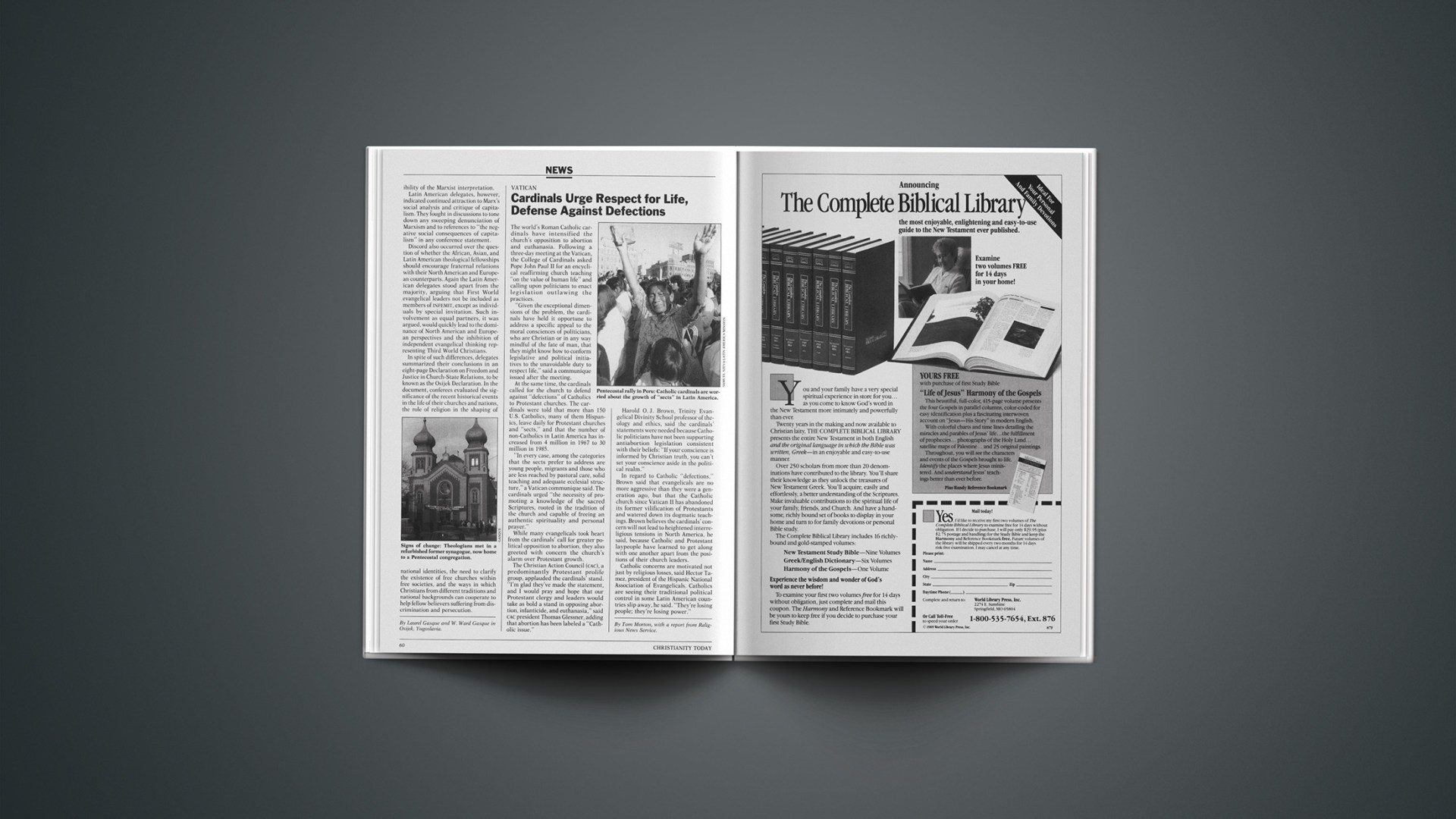The world’s Roman Catholic cardinals have intensified the church’s opposition to abortion and euthanasia. Following a three-day meeting at the Vatican, the College of Cardinals asked Pope John Paul II for an encyclical reaffirming church teaching “on the value of human life” and calling upon politicians to enact legislation outlawing the practices.
“Given the exceptional dimensions of the problem, the cardinals have held it opportune to address a specific appeal to the moral consciences of politicians, who are Christian or in any way mindful of the fate of man, that they might know how to conform legislative and political initiatives to the unavoidable duty to respect life,” said a communique issued after the meeting.
At the same time, the cardinals called for the church to defend against “defections” of Catholics to Protestant churches. The cardinals were told that more than 150 U.S. Catholics, many of them Hispanics, leave daily for Protestant churches and “sects,” and that the number of non-Catholics in Latin America has increased from 4 million in 1967 to 30 million in 1985.
“In every case, among the categories that the sects prefer to address are young people, migrants and those who are less reached by pastoral care, solid teaching and adequate ecclesial structure,” a Vatican communique said. The cardinals urged “the necessity of promoting a knowledge of the sacred Scriptures, rooted in the tradition of the church and capable of freeing an authentic spirituality and personal prayer.”
While many evangelicals took heart from the cardinals’ call for greater political opposition to abortion, they also greeted with concern the church’s alarm over Protestant growth.
The Christian Action Council (CAC), a predominantly Protestant prolife group, applauded the cardinals’ stand. “I’m glad they’ve made the statement, and I would pray and hope that our Protestant clergy and leaders would take as bold a stand in opposing abortion, infanticide, and euthanasia,” said CAC president Thomas Glessner, adding that abortion has been labeled a “Catholic issue.”
Harold O. J. Brown, Trinity Evangelical Divinity School professor of theology and ethics, said the cardinals’ statements were needed because Catholic politicians have not been supporting antiabortion legislation consistent with their beliefs: “If your conscience is informed by Christian truth, you can’t set your conscience aside in the political realm.”
In regard to Catholic “defections,” Brown said that evangelicals are no more aggressive than they were a generation ago, but that the Catholic church since Vatican II has abandoned its former vilification of Protestants and watered down its dogmatic teachings. Brown believes the cardinals’ concern will not lead to heightened interreligious tensions in North America, he said, because Catholic and Protestant laypeople have learned to get along with one another apart from the positions of their church leaders.
Catholic concerns are motivated not just by religious losses, said Hector Tamez, president of the Hispanic National Association of Evangelicals. Catholics are seeing their traditional political control in some Latin American countries slip away, he said. “They’re losing people; they’re losing power.”










